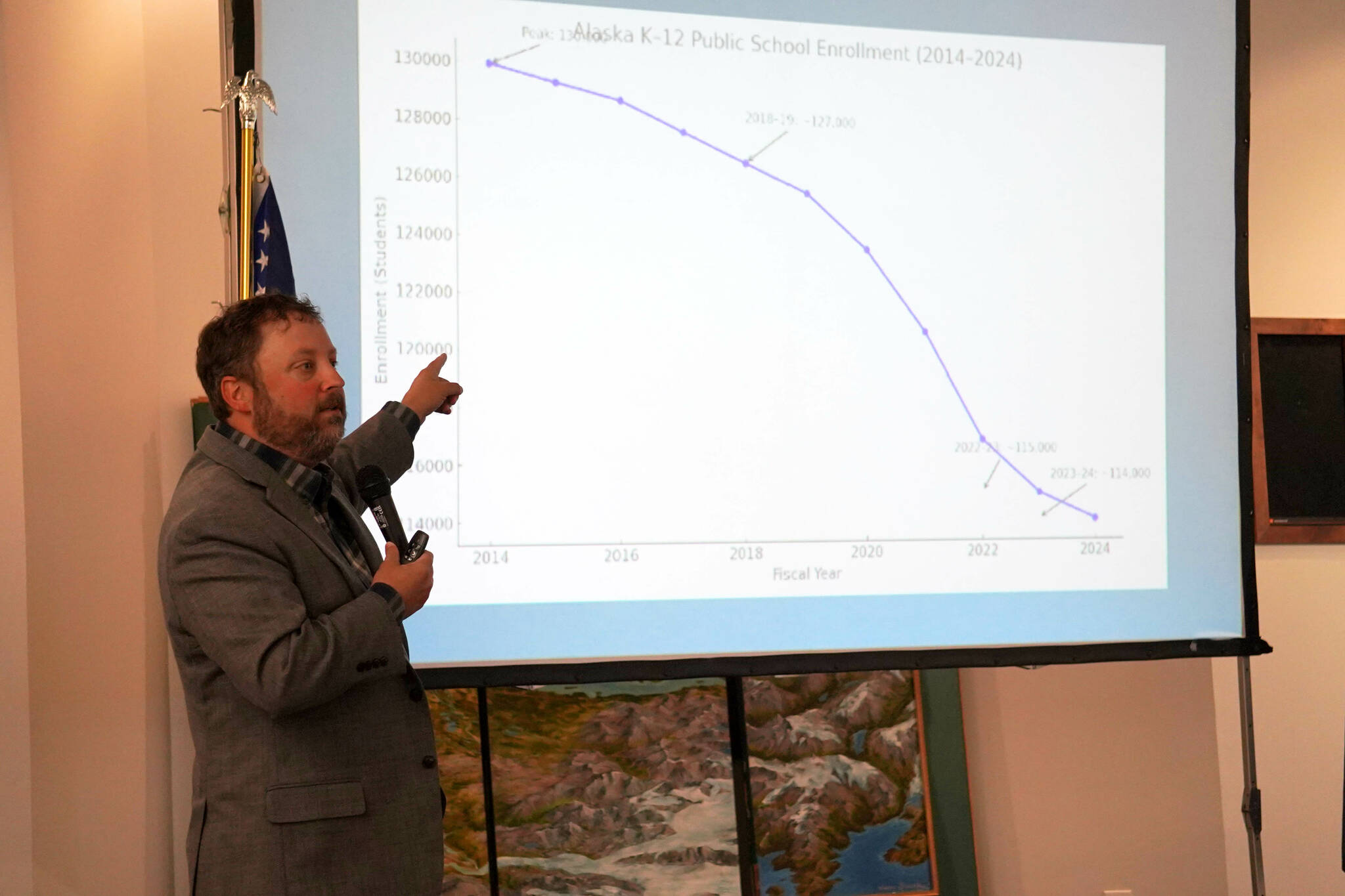Rep. Bill Elam reported back on his freshman legislative session Wednesday, during a joint luncheon of the Kenai and Soldotna chambers of commerce.
During an update on the session that ended in May, Elam touched on education, resource development, fishing and the challenge of getting up to speed as a first-time state lawmaker. His district represents a broad swath of land that stretches from Nikiski down to nearly Seward, much of the northern and eastern parts of the Kenai Peninsula.
“Nothing prepares you for the first month of going into session and getting blasted with lobbyists and special interests and government organizations — everybody wants to meet you and greet you,” he said.
Elam said he’d been fortunate to have good experience as a borough assembly member, but was pressed to balance assembling his office, the deluge of meetings, his committee assignments and caucus meetings. Also a major opportunity for Elam as a freshman legislator, he said, was his appointment to several significant committees, like resources, education and fisheries — “things that were very important to our community.”
He said the Legislature wasn’t able to do as much this year as it might have because of the “weird power dynamic” between Gov. Mike Dunleavy and the majority coalitions that led the House and Senate — Elam was part of the 19-member House minority.
Education, of course, was the “big topic.”
“You get sworn in and the next day HB 69 is on my docket,” he said. “There’s no ramp up time.”
He said that he didn’t support that bill, which would have increased state funding to education this year by $1,000 per student and called for further increases in following years, because it was too expensive.
At the same time, Elam said schools are struggling amid declining attendance numbers and repeated use of one-time funding. Funding outside the state’s education formula, with unreliable one-time dollars, Elam said, means “you lose a lot of accountability.” He also pointed to Alaska’s declining population as a driver for school funding strife — the Kenai Peninsula is growing, “but not necessarily with younger families and with kids.” That means schools will be closed.
After HB 69 was vetoed by Dunleavy, HB 57 — originally a bill to bar cellphones from classrooms later turned into a major education package — was the focus of the legislative conversation. Elam said he supported the policies in that bill that make it easier to open charter schools and harder to close them. He said that policy would protect smaller charter schools as the consolidation conversation continues on the Kenai Peninsula and around the state.
Elam didn’t mention during the update that Dunleavy had vetoed part of the funding included in HB 57. He said the bill included a $700 increase in per student — that amount was reduced in the state’s budget to $500 by Dunleavy this month.
Another major topic this year, Elam said, was the sudden advancement of the Alaska LNG Project, which has named New York-based Glenfarne Group as the lead developer and announced a slew of non-binding agreements in support. Elam said he hopes to see the project become a major revenue driver for the state.
“I am very hopeful about it,” he said.
Elam said he was also feeling optimistic about development on multiple major Department of Transportation projects from Homer to Cooper Landing and on developing solutions for struggling fisheries, but said that the state has a lot of work to do to develop a plan for its declining fiscal future.
Reach reporter Jake Dye at jacob.dye@peninsulaclarion.com.

